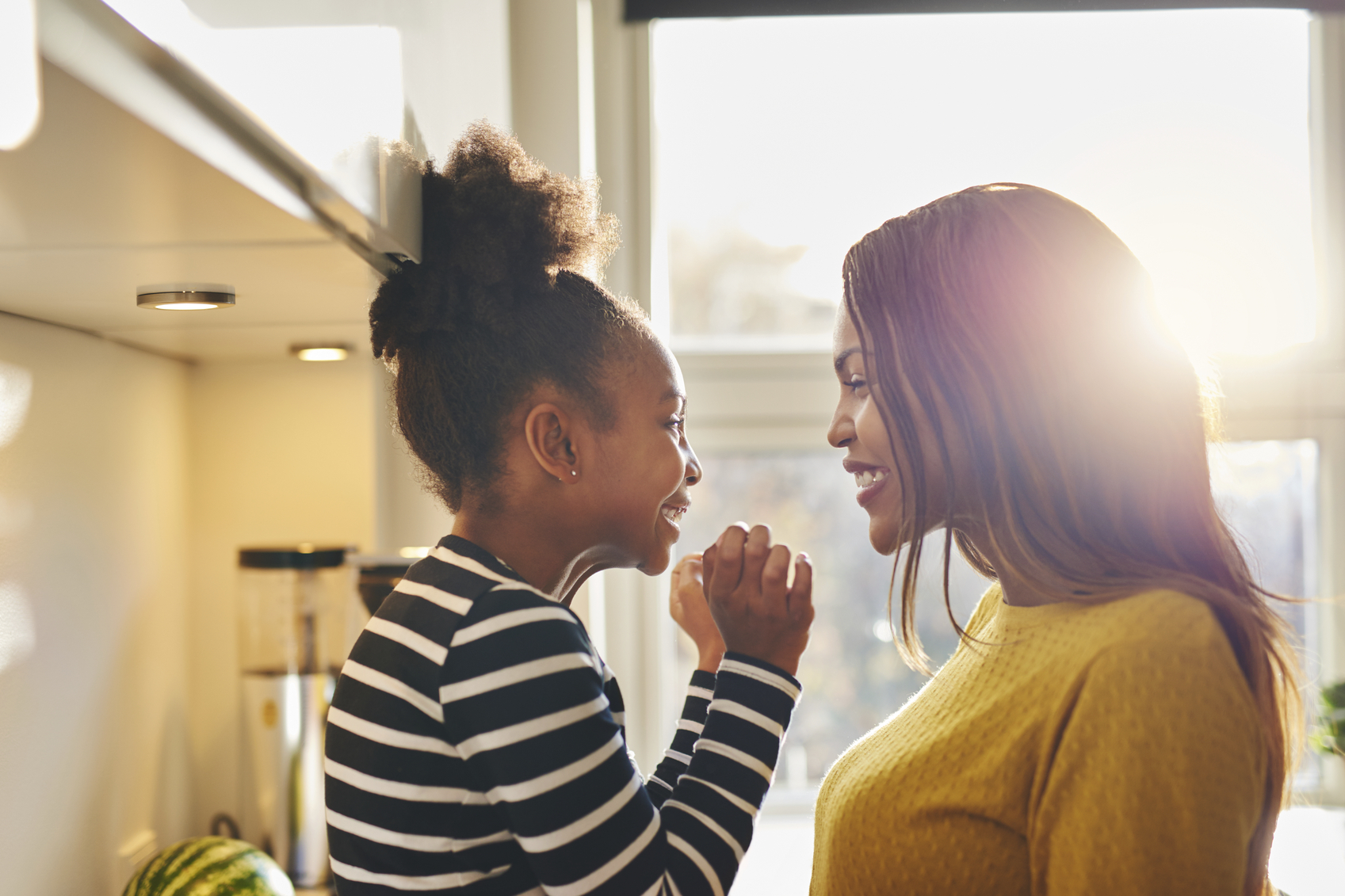
Wondering how to be a role model for your child? Surprise! You already are. All parents are the most significant role models our children will have in life. The choice is up to us as to what kind of role model we would like to be. They are always watching us, whether we are aware of it our not. They are storing away our responses as clues to how they should respond when in a similar situation.
Our children are always learning. The real secret to parenting is understanding that our actions have a much greater influence on our children than our words. We can tell them until we are blue in the face, but if we are not modeling the behavior we would like to see, we will not see it in return.
The real secret to parenting is understanding that our actions have a much greater influence on our children than our words.
To actively become a role model for our children, we must first tune in to our own behavior. We must look inward and examine how we take care of ourselves, how we manage stress, how we regulate our own emotions, how we deal with conflict with our partners and how we take responsibility for our mistakes.
When working with parents, I often have them tell me about their favorite teacher, their best manager or their favorite mentor. We list what that person did that made them such an important role model. Then I ask them share what this person did when they screwed up. Not once have I heard them say the person punished them, yelled at them or shamed them. Instead, I hear about people holding them accountable by saying, “Tell me about what happened? What do you need to do to fix the situation? What support do you need from me?” These role models were highly encouraging. When the going got tough, they said, “I believe in you. I have seen you face challenges before and I know you can do it again.”
When we hold ourselves accountable to modeling the behavior we want to see, we can stop figuring out how to make children do what we want they to. We can sit back and trust that they are storing away all of the great skills you are showing them and model patience as they blossom.
What if I forget my lines or blow my performance?
Parenting is the hardest job around. We all feel discouraged at times, and we will certainly all make mistakes. Instead of beating ourselves up, we can use this as an opportunity to model for our children what we would like them to do when they make mistakes. I recently told my oldest child that each day when I wake up, I have never parented a child her age so I am likely to make many mistakes along the way. She loved that we were in this growing thing together.
Discouragement is no fun, and we certainly do not do our best parenting from that place. It may also be a sign that self-care has flown out the window. It's hard work being a role model, and we need time to take care of ourselves to be able to do that work. Hire a sitter and go do something that feeds your soul. Go for a walk, have lunch with a friend, anything that reminds you who you outside of being a parent.
If we want kids to listen, we need to actually show we are listening when they talk ... If we want them to be respectful of us, we need to treat them with respect.
Gratitude and compliments are also great ways to move out of that discouraging place. Ending the day by writing down or sharing three things you are grateful for. Some days you may only be grateful that the day is over, but over time, our ability to be finders of good will change our outlook. Family compliments are when each person gives each other person a compliment and one for themselves. For example, in my family, I would give a compliment to each of my children, my husband and one for myself. Then the next person does theirs.
Even if a family member does not agree with the compliment they received, their job is to just say, “thank you.” Not only are you modeling how to give and receive positive feedback, you get to hear kind words from your family which is sure to turn those negative thoughts around.
What skills do I need to play the part well?
Being a positive role model means we need to develop our own set of skills. I frequently see parents struggling with how to get their kids to listen, be respectful, be patient and have compassion. Yet, it’s our ability, as parents, to model these skills in the tough moments that helps our kids build them.
If we want kids to listen, we need to actually show we are listening when they talk, and put our phones away. If we want them to be respectful of us, we need to treat them with respect even when they are driving us nuts. If we want them to be patient, we need to remember that learning new skills such as chores or schoolwork takes time and not expect them to complete them perfectly from the start.
When it comes to compassion, we can model that by giving them the benefit of the doubt when they make mistakes. We need to practice compassion ourselves in the car and in the post office, the grocery store and anywhere else that may raise our stress levels.
These are the really little moments. The moments we are not even aware that our children are watching. A stranger does something that gets in our way and we comment out loud about it. We call them idiots, wonder what sort of stupid person does that or we snub someone.
I got caught on this one day recently as I growled loudly at the person who was driving erratically ahead of me when we were already late to where we were going. My daughter asked me what the driver did that was so bad. I had to stop and think. I said, “You know, I am a little stressed that we are late, and I felt angry that this person was in my way. But, they may be late too, or may be lost.” What followed was that I relaxed! I stepped out of myself and adopted a more compassionate perspective about the driver ahead. Even though what I said to my daughter was about trying to model compassion after being critical, it really did shift my mood. That’s one of the great things about compassion: It makes US feel good when we show compassion to others. Even to the slow drivers who are in our way.
On the airplanes, when they tell us to secure our own oxygen mask first before helping our children? That's the mantra you can use for being your child's role model. Focus less on telling them and more on doing yourself. Model compassion for their mistakes and your own. Then give yourself a round of applause for a part well played.
Originally published by GROW Parenting











